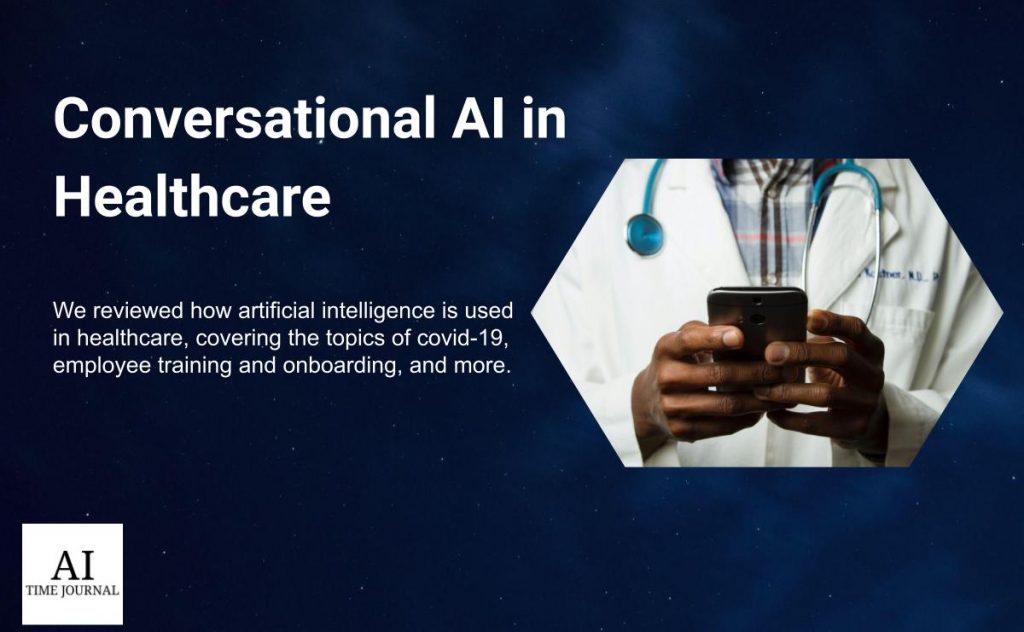
The Healthcare sector is often the last entity that embraces technological revolutions or updates, because of its dependence on human-to-human interactions. However, Covid 19 has forced this sector to collaborate with AI, especially conversational AI applications, to maximize its efficacy too.
Why is AI still not prominently used in Healthcare?
Whenever a patient visits any hospital for any sort of treatment, they expect a human, not a bot, to interact with them. This is because most patients are already anxious and frightened of medical procedures, which more often than not, happen to be physically, emotionally, and economically taxing. In these circumstances, any kind of empathetic interaction between patients and professionals acts as a form of solace. This is why the integration of chatbots and virtual assistants has been slower in hospitals and clinics.
Covid-A recipe for change?
Nevertheless, this slow integration has still shown great feats of success in the past few years, thanks to conversational AI. During the pandemic, healthcare services were disastrously strained with an immeasurable workload and short staffing. This meant that the quality of service being provided by hospitals was quite compromised. And this is exactly where the efficacy of conversational AI was best optimized.
Conversational AI with the unique combination of NLP and ML has created a system that is far more nuanced and effective than mere chatbots. With every interaction, Conversational AI applications can refine their database and make every future communication better than the last one. This constant feedback and improvement loop has made this AI competitive and a favorite tool for many industries.
Uses of AI in Healthcare
Particularly, in the Healthcare sector, the use of Conversational AI-driven chat boxes has been a textbook example of success. Patients can ask for any information regarding the types of services, schedule, pricing, insurance details, and Medical professional of Healthcare providers in real-time, without any human intervention. FAQs can be answered swiftly as a result too. Conversational AI with the help of Natural Language Processing (NLP) can detect, analyze and respond to queries made by people, no matter how the verbal/text input is phrased. By using Machine Learning (ML), the system is always rapidly improving, which is incomparable to any actual human staff improvement.
Not only this, but Conversational AI can also help Medical Professionals provide finer services to patients. With the help of virtual assistants, schedules can be made easier, and information regarding patients’ medical history can be collected and curated for the study of Physicians so that they’re prepared and can process the best treatment plan for patients.
Alongside, patients can benefit long term with the help of these Conversational AI virtual assistants too. These VAs can help the patients take medications on time, be present for routine checkups, record any symptoms of abnormality, etc. This is especially helpful for elderly patients or patients with a disability as it makes continuing healthcare services more stress-free.
Conversational AI can also help with employee training and onboarding. This makes the process more efficient and healthcare companies have to use less manpower on this quite overwhelming task. Training of medical employees is very important and that’s why precise and informative training material and curating is important, something AI is especially good at.
However, it’s worth noting that human-to-human training is also still exceptionally useful as actual interaction can help stressed newcomers.
Management of Hospitals, clinics, and pharmacies can be enhanced with the use of Conversational AI too. Virtual assistants can be programmed to collect past management data, analyze trends of any discrepancies, suggest corrections, and predict future sources of mismanagement. This will greatly reduce the burden created due to a shortage of staff in most healthcare outlets.
Subash Gandyer, senior AI lead of ConversationHEALTH Inc, skillfully describes further the technological revolution that Conversational AI is about to start in this critical Industry. His interview can be found here:
Nisha Arya Ahmed’s article on Healthcare and AI, for AITJ, is also a splendid read for a more in-depth understanding of AI’s dominance in Healthcare.
In conclusion, Conversational AI in Healthcare is here to stay and with the rapid growth in technological advancements in AI, it’s safe to assume that we can expect a future healthcare system that optimally collaborates with AI further to transform medical experiences once and for all.